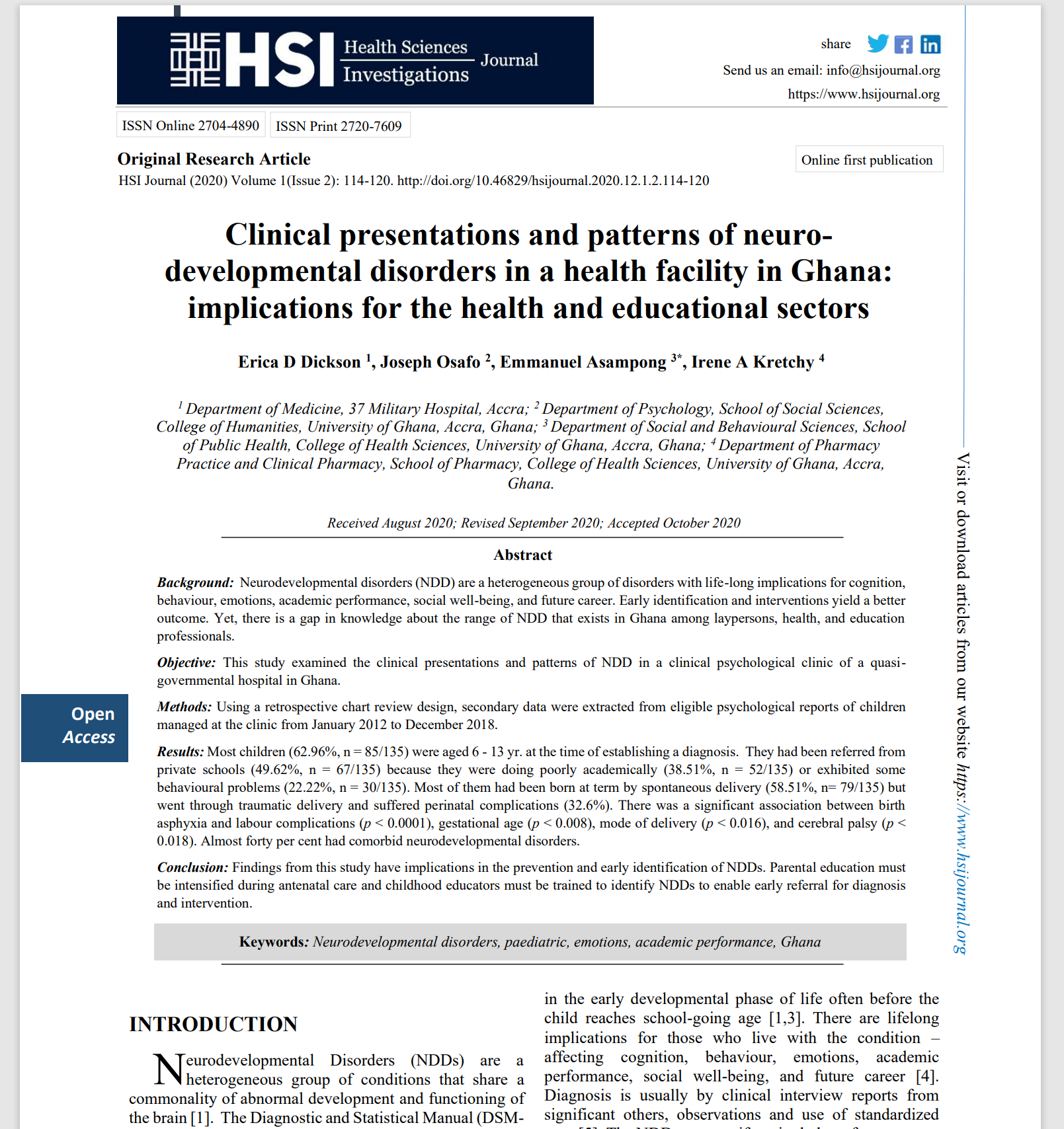Clinical Presentation and Pattern of Neuro-developmental Disorders in a Health Facility in Ghana: Implications for the Health and Educational Sectors
Clinical presentations of neuro-developmental disorders in a health facility
Abstract
Background: Neurodevelopmental disorders (NDD) are a heterogeneous group of disorders with life-long implications for cognition, behaviour, emotions, academic performance, social well-being, and future career. Early identification and interventions yield a better outcome. Yet, there is a gap in knowledge about the range of NDD that exists in Ghana among laypersons, health, and education professionals.
Objective: This study examined the clinical presentations and patterns of NDD in a clinical psychological clinic of a quasigovernmental hospital in Ghana.
Methods: Using a retrospective chart review design, secondary data were extracted from eligible psychological reports of children managed at the clinic from January 2012 to December 2018.
Results: Most children (62.96%, n = 85/135) were aged 6 - 13 yr. at the time of establishing a diagnosis. They had been referred from private schools (49.62%, n = 67/135) because they were doing poorly academically (38.51%, n = 52/135) or exhibited some behavioural problems (22.22%, n = 30/135). Most of them had been born at term by spontaneous delivery (58.51%, n= 79/135) but went through traumatic delivery and suffered perinatal complications (32.6%). There was a significant association between birth asphyxia and labour complications (p < 0.0001), gestational age (p < 0.008), mode of delivery (p < 0.016), and cerebral palsy (p < 0.018). Almost forty per cent had comorbid neurodevelopmental disorders.
Conclusion: Findings from this study have implications in the prevention and early identification of NDDs. Parental education must be intensified during antenatal care and childhood educators must be trained to identify NDDs to enable early referral for diagnosis and intervention.


